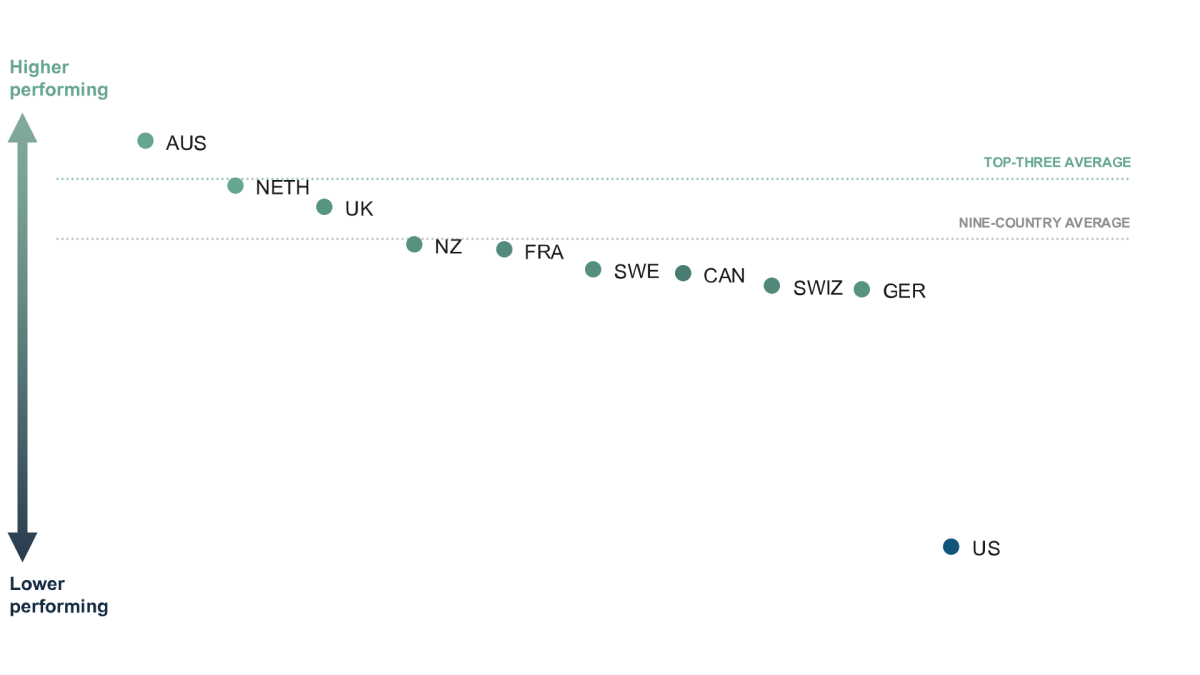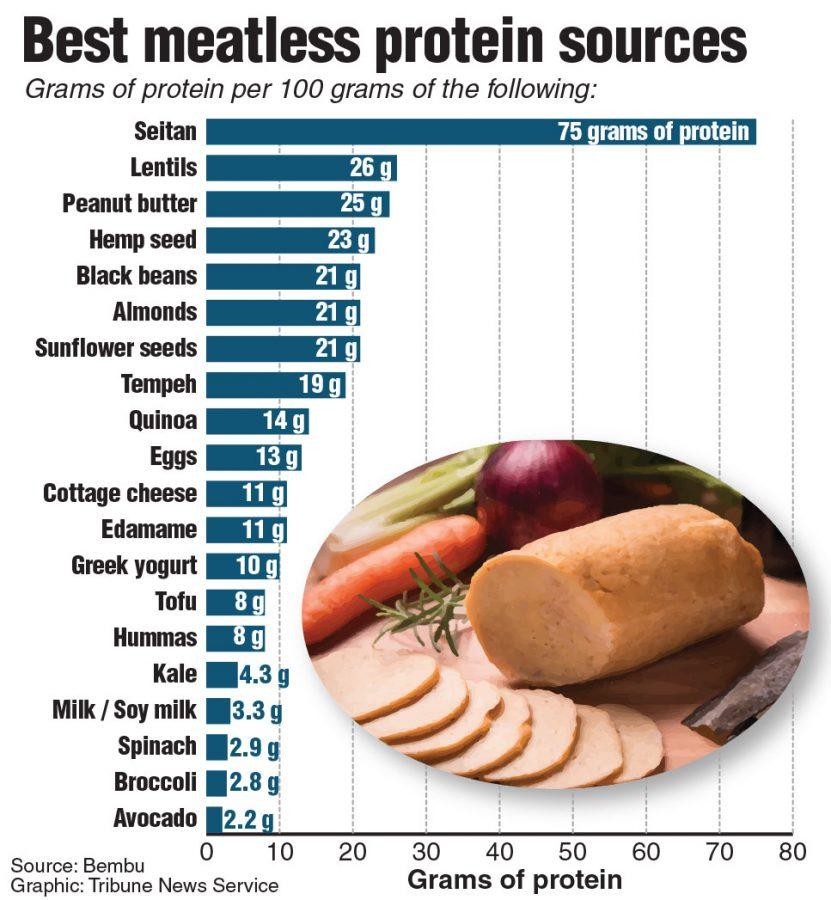Extended Meatless Monday: Students eat less meat
Chart showing the top meatless high protein foods. Tribune News Service
Meat is often credited as the main factor for us to evolve into the humans we are today. Swapping a diet of tough fibrous plants for one of high caloric meat is said to have given our ancestors the extra energy so their brain could grow larger and smarter. But opting for a meat-free diet is becoming more and more popular, and people wonder why some would give up such an essential component of our diet.
The number-one reason why many people are not vegetarian is because they have been eating meat for most of their life, and believe they don’t have the willpower to give up meat. Sophomore Annabel Lee said, “It’s a major thing [to give up meat]. I don’t know if I did I would last a month, maybe only a week or two at most.” While Lee does supports people who go vegetarian, seeing herself living that lifestyle is a different matter. “I’m not as educated as I’d like to be [about vegetarianism],” Lee said, “Maybe when sports end I’ll give it a try. But I do like hamburgers a lot.”
There are several types of vegetarians, with some more restrictive than others. The most common type of vegetarian is a lacto-ovo vegetarian. Lacto-ovo vegetarians will consume dairy and egg products, but avoid eating red meat, white meat, fish, and fowl. Similarly, an ovo vegetarian and a lacto vegetarian both avoid consuming red meat, white meat, fish, and fowl, but an ovo vegetarian avoids dairy products and eats eggs, and a lacto vegetarian will eat dairy products but not eggs.
Pollotarians and pescatarians (or pescetarian) are more “semi-vegetarians”; both do not eat red meat, but a pescatarian consumes fish and seafood while also avoiding white meat, and fowl. A pollotarian eats poultry and fowl, and also does not consume fish or seafood.
A flexitarian is not necessarily a type of vegetarian, but simply someone who restricts their meat consumption, while mainly eating a plant-based diet.
Vegans are the most restrictive type of vegetarian. A vegan will not eat any meat, eggs, dairy, and use animal by-product ingredients or products, such as gelatin, animal broths, honey, or beeswax, and many vegans avoid wearing any animal products like silk, leather, wool, or fur.
There are some vegans who eat a plant-based diet, but do continue to use or wear animal products because of the lack of vegan-friendly products or clothing on the market. Others wear clothing made with animal products but purchase them second-hand.
There are various reasons why someone might go vegetarian. Health, ethical, and religious reasons are some of the most common. It has been found that eating processed meat does lead to cancer, plus eating a more plant-based diet is more healthful. Ethically, many vegetarians view animals as being equal, and are against the food industry’s treatment of animals. Some eat a vegetarian diet because of their religion. Hindus and Buddhist often follow a vegetarian diet, and followers of Jainism are either vegetarian or vegan. Many catholics will avoid eating meat on Fridays during Lent.
Whatever the reason to go vegetarian, there’s really not much of a reason not to try. Senior Natalie Bernier went vegetarian about five months ago; “I love it,” she said. “I don’t miss meat at all.”
Your donation will support the student journalists of North Kingstown High School. Your contribution will allow us to distribute a print edition of the Current Wave to all students, as well as enter journalism competitions.











